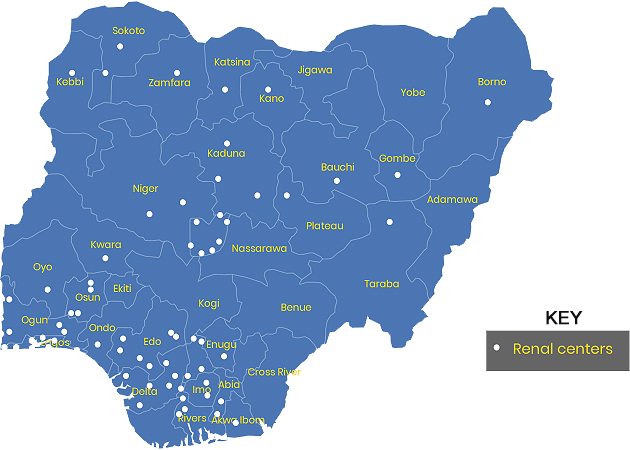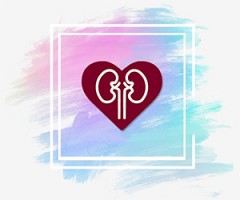Kidney Disease in Nigeria
Recently, the President of the Nigerian Association of Nephrology (NAN), Ifeoma Ulasi, said that 25 million Nigerians have kidney disease. As a result of this new finding, the NAN's president also called for more attention to this life-threatening condition and the effective treatment in health systems.
With the cost of dialysis sessions ranging from N20,000.00 to N50,000.00 per session. It is worth noting that the global standard recommendation for dialysis is a number of 3 sessions a week for an average of 3-5 hours.
However, a study labelled the rate of adherence a "fry cry from the recommended standard" in Nigeria.
On account of the cost, a person suffering from kidney failure reportedly opts for fewer dialysis sessions; sometimes even once a week. Another study in Nigeria noted that none of the 101 participants in the Ekiti University Teaching Hospital's dialysis centre could maintain three sessions per week for three months.
The discontinuation of dialysis is frequently reported in Nigeria and has serious health implications on those suffering from Kidney failure.
Also, with few Nigerian tertiary health facilities having functional dialysis treatment centres, the prognosis for CKD patients in Nigeria seems all too bleak. Not surprisingly, most CKD patients in Nigeria travel long distances from state to state, searching for cheaper dialysis centres with functioning units. In some states, tertiary facilities often have no dialysis machines.
Call to action
Despite years of advocacy actions by the Nephrology Association of Nigeria and other pressure groups, the National Health Insurance Scheme (NHIS) in Nigeria currently only provides limited coverage for CKD patients.
There is increased and coordinated advocacy from nephrologists, cardiologists, haematologists to the government at national and state level to expand coverage for CKD patients as part of new efforts to bring the National Health Insurance under one roof.
Moreover, the government must do more to educate the public on kidney disease prevention. There is little information to educate the general public on how to protect their health and prevent disease. More must be done in this important area of health promotion.
Most young ladies striving for a beautiful complexion are not aware that bleaching creams can cost them their kidneys and most patients managing diabetes type 2 are unaware that kidney disease can be a complication. Health promotion is thus central to address this gap in knowledge.
Map of Nigeria showing the distribution of dialysis centres

Source:
Ekrikpo, Udeme E., Aniema I. Udo, Enobong E. Ikpeme, and Emmanuel E. Effa.
"Haemodialysis in an emerging centre in a developing country: a two year review and predicators of mortality." BMC nephrology 12, no. 1 (2011): 50.
© 2026 Kidney Care Foundation- a Texas registered charitable organization.
Powered by Nekston
